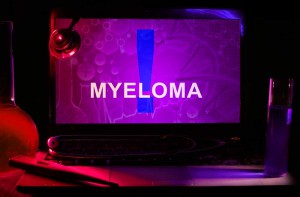What is Lymphoma?

Lymphoma is cancer of the lymphatic system. The lymphatic system is a network of lymph nodes and lymph ducts which helps our body fight infections. Lymphoma develops when the lymphocyte cells in the lymphatic system turn cancerous. When this happens, they can invade into organs and choke off the body’s functions. Lymphoma is the fifth most common cancer in the United States, and has been increasing for reasons unknown. Some lymphomas are caused by viruses such as HTLV-1 and Epstein-Barr virus.
There are over 20 types of lymphoma, which fit into three categories: 1) Hodgkin’s lymphoma, 2) non-Hodgkin’s lymphoma- “low grade” and 3) non-Hodgkin’s lymphoma- “high grade”.
Lymphoma is diagnosed by taking a biopsy, usually of a lymph node. Lymphoma can be treated with radiation, or with medicines such as steroids, antibodies, or chemotherapy. Surgical treatment is not recommended, because lymphoma is not confined to one place in the body. Bone marrow transplant is an option, but is reserved for younger patients when other treatments are not successful.
Hodgkin’s lymphoma is uncommon, occurring in adolescents or young adults, but also in older adults. It usually begins with lymph node swelling in the neck, groin, or elsewhere. Patients can get fevers, chills, and night sweats. Hodgkin’s lymphoma is one of the most curable of cancers, especially if discovered in the early stages. It can be cured with chemotherapy, radiation, or a combination of the two. People with earlier stage disease do better, but even patients with advanced stage disease can be cured. If Hodgkin’s lymphoma is resistant to initial treatment, it may still be cured with bone marrow transplant.
Non-Hodgkin’s lymphoma- “low grade”- can occur in any age group. Patients can present with swollen lymph glands, or with almost any symptom. The symptoms vary because this type of lymphoma can occur anywhere in the body. It cannot be cured with chemotherapy, but can be put into remission. If there’s a relapse, more chemotherapy can be given. Since this lymphoma grows slowly, people can live with it for many years. Antibody therapy is also effective. The only way to cure non-Hodgkin’s lymphoma “low grade” is by bone marrow transplant, but many patients are not candidates for such aggressive treatment. Patients with stage I disease, which is uncommon, can be cured with radiation alone.
Non-Hodgkin’s lymphoma “high grade” can also produce swollen lymph nodes, or any symptom, because it too can occur anywhere in the body. High grade lymphoma grows faster than low grade lymphoma, but unlike low grade lymphoma it can be cured with chemotherapy. If the disease is resistant to chemotherapy or radiation, it can be cured with bone marrow transplant.
Lymphoma was one of the first cancers for which a “magic bullet” was developed. Magic bullets are drugs that specifically target cancer cells, and spare normal body tissues. A magic bullet for lymphoma is a drug is Rituxan, which is an antibody that kills some lymphomas. It can be used alone or with chemotherapy. Newer radioactive antibodies (Bexxar, Zevalin) are also available, and are highly effective in relapsed patients. These new drugs are proof that investments in biotechnology can pay off with effective and curative treatments for cancer.

